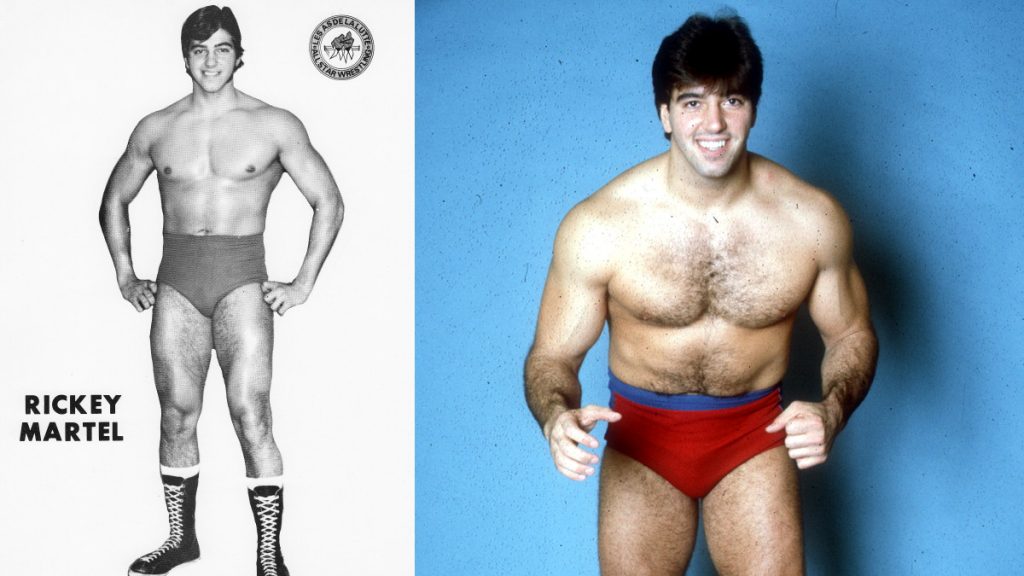Kayfabe Commentaries Timeline DVD series are often either a hit or a miss. The new entry about the WWE of 1981 as told by Rick Martel would have to be somewhere in the middle of that. Rick Martel is great, as usual, attempting to recall to the best of his abilities his first stint in New York as well as the impressive cast of characters he worked with there—many of whom would change the business in the next couple of years.
People often romance about the pre-national expansion era of pro wrestling. The reality is that in most territories, if you were lucky, the money was sometimes good enough to make a living but it was far from the image the wrestlers and promoters would have us believe about those days.
Martel’s perspective about this territory, known as WWWF or New York, being at the top of the food chain already is interesting: “It was fun, you knew you would be taken care of in the ring and that you would make money. You also knew when the run was expected to end.”
The main critic about this entry is that more often than not we can’t seem to stay in 1981 as we moved from era to era depending where memory lane beckoned. I found myself wishing the host Sean Oliver would at least try to bring the discussion into the specific era or ask a follow-up question. The concept behind Timeline was to create a different type of shoot interview and you sometime feel you are watching a regular shoot interview, a very good one mind you, still just another shoot interview.
Still, Martel has ton of funny and touching stories about the people he worked with from Larry Zbyszko to Adrian Adonis, to Superstar Billy Graham, to Gorilla Monsoon, and even Andre the Giant. In this case, while on the road wrestlers who spoke French would often travel together because speaking the language would bring them a little closer to home. Martel has a great story about Andre and two women; the Giant was they were talking about them in very explicit fashion, but he did not know they understood everything he said in French.
We go through interesting points that even I, a self-appointed Rick Martel expert, didn’t know about. For example, even if he had a few great performances during Royal Rumble matches in the past, Martel never liked competing in that type of match. I can see his point since there so many people and it’s hard to not get in the way of the other wrestlers. There is no chance for a good match. He grants that the Rumble gives you a little more space and is more conductive to creating better matches.
He also goes into details on his relationship with a young Curt Hennig before he was Mister Perfect, as Pat Patterson made the request for him to take care of the son of his friend Larry Hennig by showing him the ropes in the New York territory. It is very touching to learn that years later when they were both together in WCW, Hennig was grateful for Martel being such a good friend to him early on.
A very interesting point made about 1981, is also that people worked back then in a way that was completely safe. It was not a human stunt show. If you didn’t know how to do it safely, you would just not try it. This is a very different philosophy than in WCW when Martel’s career was cut short after a few serious injuries in a row. It was very insightful on his part.
Finally, there are some stories about what Martel call the rib master: Mister Fuji. Fuji would suffer through his own practical joke in order to catch someone. The most famous one being to have his partner, Mister Saito, go on with him in the for seven hours in what should have been a 45-minute car ride to the arena. All of that so that after the show, he could drive home using a “short cut” and have his partner there in no time. Dedication to your craft was very important even outside of the ring back in those days.
All fans of Rick Martel should get this DVD to learn even more about a man who always delivered for them. If you want to learn about the history of the business, it is also full of insight about another era and a different Vince McMahon. An era where things were simpler and yet at the same time just about to get really interesting. “Working for Vince Sr. you didn’t worry about the future, his word was his bond,” Martel concluded.
RELATED LINK
